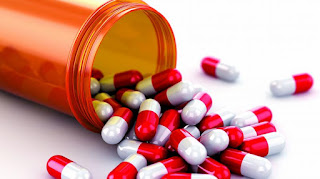Antibiotics and Its Possible Misuse
Before antibiotics, the Greeks and Indians used moulds and plants to treat infections, Greece and Serbia used moldy bread, Babylonians used frog bile and sour milk. The ancient men thought that these remedies work under the influence of gods or spirits. However, the curative powers of mould, that is commonly used in ancient treatments, is owed to an entirely different entity. Mould contains a raw form of antibiotics that would eventually lead to Alexander Fleming discovering a naturally antiseptic enzyme he called lysozyme and penicillin, which he accidentally discovered while observing a common fungus called Penicillium notatum destroy a bacteria. Fleming's discovery revolutionized medicine and ultimately saved hundreds with his new wonder drug, now known as Antibiotics.
What's the catch?
As miraculous as Antibiotics are, the drug, when used incorrectly or in huge amounts, may cause a person his life. Antibiotic abuse or overuse contributes to the development of "superbugs"-- a multi-drug resistant bacteria that work by killing relatively harmless bacteria such as staphylococcus and enterococcus until they develop a sort of immunity that would lead to more serious and life-threatening infections.Do not...
use antibiotics for viral infections:
Antibiotics have no effect on the common cold, sore throats, or any other viral infections. These minor illnesses are self-resolving, and treating them with antibiotics would just cause adverse reactions in the patient's system. Dentists took this cue and are requested by their board to restrict the use of antibiotics on their patients. However, their guidelines aren't as strict, allowing some dentists to treat mouth infections with antibiotics to the point of overusing it.buy or raise antibiotic-fed livestock:
Animal husbandry sees the most abundant use of antibiotics worldwide. Farmers feed animals with food and water laced with antibiotics to prevent these animals from getting sick and promoting their growth. This leads to the possibility of bacteria developing antibiotic resistance and once humans eat these livestock, these resistance genes would eventually transfer to our human pathogens, inhibiting treatment to serious infections.fail to take your antibiotics as prescribed:
Some people tend to stop taking their prescribed medicine as soon as they feel better. However, antibiotics require the full proper dosage to kill disease-causing bacteria. Not undergoing the full treatment, or stopping it without your doctor's knowledge may cause you to receive another round of treatments, thus exposing yourself to potentially life-threatening infections caused by antibiotics overuse. This may also promote the growth of bacteria with antibiotic-resistant properties.
Antibiotics will not save you this time
Antibiotics-resistant bacteria require more work in order to get rid of them. This would require higher costs in an economy that could not take it. If the statistics prove to be true, ten million people would die by the end of 2050 due to the lack of available treatments in combatting antibiotic-resistant bacteria in diseases. If doctors would just exhaust all other treatments before prescribing antibiotics, and if patients were to be more responsible in taking it, then antibiotic consumption will decrease, healthcare costs will be reduced, and growth of antibiotics-resistant bacteria would decline as well.Before taking antibiotics, ask yourself this:
Sources:
https://amrls.cvm.msu.edu/pharmacology/historical-perspectives/the-pre-antibacterial-era
https://www.mayoclinic.org/healthy-lifestyle/consumer-health/in-depth/antibiotics/art-20045720
http://www.wpro.who.int/mediacentre/releases/2017/20171110/en/
photo credits to its owners







Comments
Post a Comment